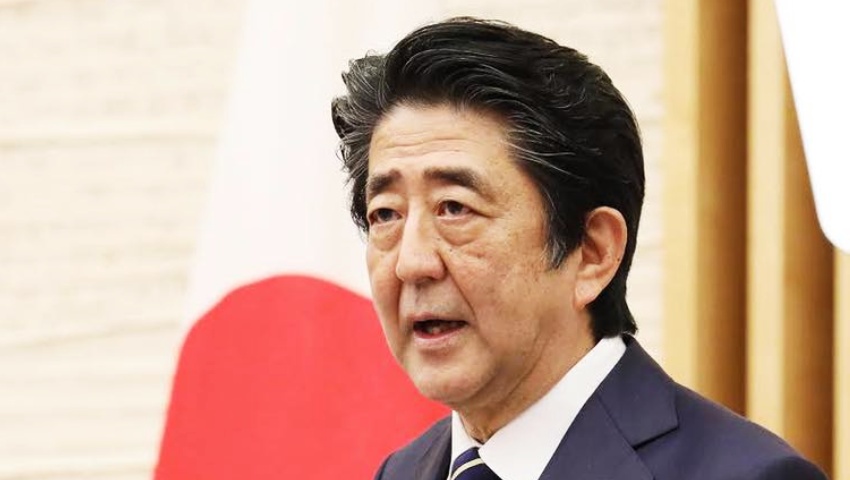Will currently serving Japanese Prime Minister Fumio Kishida advance Shinzo Abe’s Indo-Pacific security legacy following his tragic death?
To continue reading the rest of this article, please log in.
Create free account to get unlimited news articles and more!
While campaigning for a parliamentary election on Friday (8 July), former Japanese prime minister Shinzo Abe was shot and killed by an assassin using a homemade firearm.
Abe’s tragic death sent ripples throughout the international community, which continues to honour the legacy of the longest-serving Japanese prime minister.
While in office from December 2012 to September 2020, Abe led a push to strengthen Japan’s relationships with Western democracies, including Australia, particularly off the back of Chinese aggression in the Indo-Pacific.
Rikki Kersten — honorary professor at the Australia–Japan Research Centre from the Australian National University — explores whether Abe’s security legacy will be preserved following a strong election result for his Liberal Democratic Party.
“As Japan went to the polls for the half upper house election on 10 July, the shadow of former prime minister Shinzo Abe’s murder loomed over the result,” she writes in ASPI’s The Strategist.
“His shocking death on Friday may have contributed to the higher voter turnout of 52 per cent (compared to 48 per cent last time), and exit polls will reveal the extent to which a sympathy vote mobilised voters.”
The Liberal Democratic Party and its coalition allies have secured a two-thirds majority in Japan’s upper house, which Kersten claims would enable Prime Minister Fumio Kishida to advance his security policies.
“Security was central to the LDP’s platform in this poll,” she continues.
“Since rising to the presidency of the party in 2021, Kishida has faithfully pursued the expansive policy suite promoted by Abe during his tenure: a proposed doubling of the defence budget, the embrace of effective counterattack capabilities in Japan’s defence arsenal, the acquisition of missile-defence capabilities, and revision of the pacifist clause of Japan’s 1947 constitution.”
But Kersten questions whether Prime Minister Kishida can push through the agenda without the powerful presence of Abe.
“Kishida’s policy positions were more dovish than hawkish before he rose to the highest office,” Kersten adds.
“There is no doubt that Kishida owes his job to Abe’s decision to switch his votes in the LDP presidential race to Kishida.
“It’s also likely that this support from Abe and his Seiwa Seisaku Kenkyukai faction came with certain undertakings and assurances attached. How the largest LDP faction regroups, and who emerges to spearhead its policy preferences in the realm of security, are going to be important. At first glance, there is no one with Abe’s stature and substantive security policy background in the wings.”
According to Kersten, the greatest test to Abe’s legacy is the longevity of the security institutions he established.
“Abe’s transformative impact on how Japan’s security policy is formulated and coordinated is readily apparent,” she writes.
The former prime minister’s actions included centralising power over decision-making on security and defence in the Prime Minister’s Office (Kantei), which resulted in the delivery of Japan’s inaugural national security strategy in December 2013.
Additionally, Abe set up the National Security Council, supported by a secretariat in the Cabinet Office, streamlining communication channels between all relevant government ministries.
Abe also established the Cabinet Bureau of Personnel Affairs in 2014, which placed more authority on constitutional matters with appointees to key roles within the bureaucracy.
“This was vital to the passage of the 2015 suite of security legislation affirming that collective self-defence was not inconsistent with current interpretations of the constitution,” Kersten argues.
“It’s important to recall, as emotions swirl in the wake of the brutal attack on Abe, that public opinion was overwhelmingly against the passing of these laws, which the Abe administration achieved by guillotining debate and forcing it through.”
Further, Kersten claims as Japan’s longest serving prime minister, Abe was able to facilitate future security policy development by weakening Japan’s self-imposed limits on weapons exports in 2014.
“The objective of revising the constitution was not realised in Abe’s lifetime, but he helped ensure that when the time came it would be easier to achieve,” she writes.
“Constitutional revision still requires a two-thirds majority in each chamber of the Diet, but the ensuing national plebiscite will only require a simple majority thanks to the new laws passed in June last year.”
Finally, Kersten notes that under Abe’s leadership, the Japanese public warmed to the idea security and pacifism “were not diametrically opposed”.
She continues: “His philosophy of so-called proactive pacifism tried to reconfigure the norm of pacifism away from simple anti-militarism and towards a more proactive contribution to the building and maintenance of peace on a global scale.
“The ‘free and open Indo-Pacific’ policy stance and the revitalisation of the Quad were important pillars of Abe’s attempt to redefine the meaning of peace for his people.”
Kersten concludes by stressing that the “deepening and broadening” of Japan’s security relationship with Australia during Abe’s tenure was “vital to his long-term vision”.
“It defused suggestions that a more capable Japan would exclusively be beholden to, and subordinate to, its ally the United States,” Kersten adds.
“Does Kishida actually embrace the same vision, and have the commitment, to break the taboos in security policy that were the driving force behind Abe’s political career? Due to the tragic circumstances of Abe’s demise, we are about to find out.”
Get involved with the discussion and let us know your thoughts on Australia’s future role and position in the Indo-Pacific region and what you would like to see from Australia's political leaders in terms of partisan and bipartisan agenda setting in the comments section below, or get in touch with

 Login
Login







